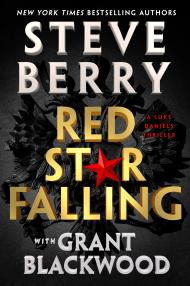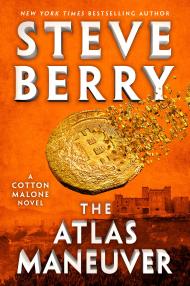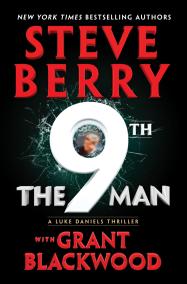The Omega Factor
Contributors
By Steve Berry
Read by Scott Brick
Formats and Prices
Price
$31.99Format
Format:
- Audiobook Download (Unabridged) $31.99
- ebook $9.99 $12.99 CAD
- Trade Paperback $17.99 $22.99 CAD
- Trade Paperback $24.99 CAD
- Mass Market $10.99 $13.99 CAD
- Audiobook CD (Unabridged) $50.00 $63.00 CAD
Also available from:
Enter UNESCO investigator, Nicholas Lee, who works for the United Nations’ Cultural Liaison and Investigative Office (CLIO). Nick’s job is to protect the world’s cultural artifacts—anything and everything from countless lesser-known objects to national treasures.
When Nick travels to Belgium for a visit with a woman from his past, he unwittingly stumbles on the trail of a legendary panel from the Ghent Altarpiece, stolen in 1934 under cover of night and never seen since. Soon Nick is plunged into a bitter conflict, one that has been simmering for nearly two thousand years. On one side is the Maidens of Saint-Michael, les Vautours—the Vultures—a secret order of nuns and the guardians of a great truth. Pitted against them is the Vatican, which has wanted for centuries to both find and possess what the nuns guard. Because of Nick the maidens have finally been exposed, their secret placed in dire jeopardy—a vulnerability that the Vatican swiftly moves to exploit utilizing an ambitious cardinal and a corrupt archbishop, both with agendas of their own.
From the tranquil canals of Ghent, to the towering bastions of Carcassonne, and finally into an ancient abbey high in the French Pyrenees, Nick Lee must confront a modern-day religious crusade intent on eliminating a shocking truth from humanity’s past. Success or failure—life and death—all turn on the Omega Factor.
-
“Berry once again smoothly blends action and history. Dan Brown fans will want to check this one out.”Publishers Weekly
-
“Nick is a good character, with plenty of room to grow. Here's one vote for Berry making a series out of Nick's adventures.”Booklist
-
Praise for Steve Berry
-
“Berry pumps the veins of history with action-packed adrenaline.”The Chicago Tribune
-
“Berry is the master scientist with a perfect formula for the bestseller lists.”Associated Press
-
“(Berry) proves once again that he has a genuine feel for the factual gaps that give history its tantalizing air of the unknown.”The New York Times
-
“Bestseller Berry once again shows there’s no working author more skilled at combining thrilling adventure with engrossing historical detail."Publishers Weekly
-
“Prolific writer Steve Berry has been creating intelligent, top-shelf fiction for decades.”bookreporter.com
- On Sale
- Jun 7, 2022
- Publisher
- Hachette Audio
- ISBN-13
- 9781549163852
Newsletter Signup
By clicking ‘Sign Up,’ I acknowledge that I have read and agree to Hachette Book Group’s Privacy Policy and Terms of Use








